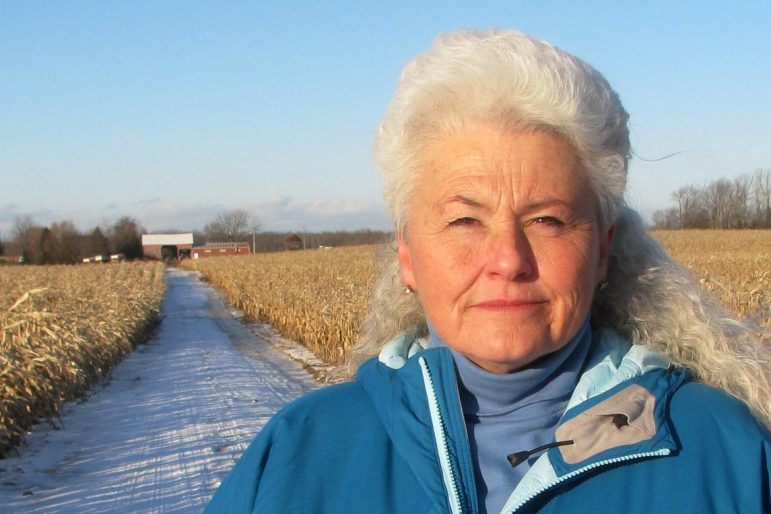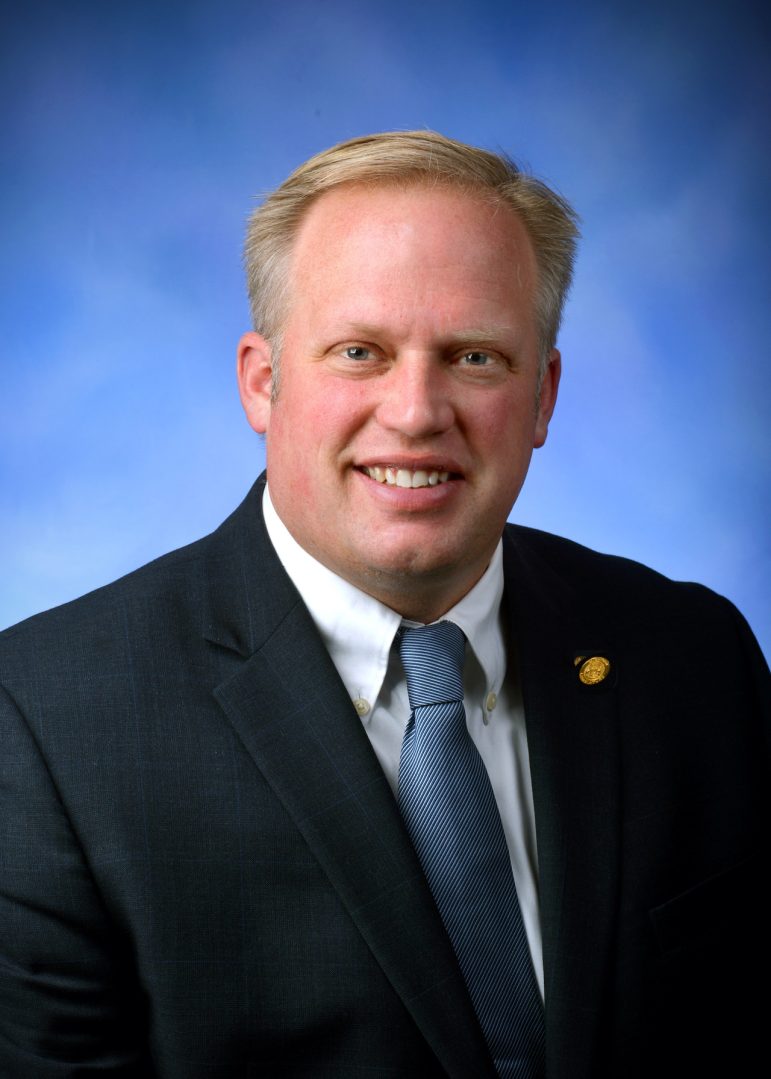
By Emilio Perez Ibarguen
In early 2024, the Fremont Regional Digester – located about 30 minutes outside Muskegon – closed its doors for the final time after a years-long dispute with state regulators.
Officials from the Department of Environment, Great Lakes and Energy argued that the digester – designed to convert organic matter into gases that are burned to generate electricity – needed to operate under a different permit type to regulate the liquid waste it generated.
The cost of that new permit, which would have required the facility to be more careful in how it applied its waste to nearby fields, was deemed too expensive by Generate Upcycle, the digester’s parent company, leading to its closure.

What happened to the Fremont digester is one example of overregulation by Environment, Great Lakes and Energy, harming Michigan businesses and agriculture, said Rep. Luke Meerman, R-Coopersville.
“We want our environment protected, but other states are doing it so much better,” said Meerman, who is a fifth-generation dairy farmer. “Why is Michigan getting it so wrong?”
However, other farmers and environmental advocacy groups disagree with the claim that the department is overreaching. They say the state could be doing more to rein in the agriculture sector’s environmental impact.
The department “isn’t trying to put people out of business,” said Megan Tinsley, the water policy director at the Michigan Environmental Council. “From my perspective, it’s the department that’s keeping the state open for businesses because they’re protecting the air and the water.”
State laws require businesses, industry and agricultural operations to adhere to rules meant to regulate air pollution, limit water pollution and control waste disposal.
Permits from the department outline the required conditions for operation, as well as the reporting, pollution monitoring and testing needed to comply with the regulations.
However, Meerman said the cost of meeting those requirements can be an unnecessary burden on farms where profit margins are thin, adding that many of his friends are “considering whether or not there is a future for them in Michigan.”
Since August 2023, the Department of Agriculture and Rural Development has offered up to $2 million to help agriculture operations comply with Environment, Great Lakes and Energy wastewater regulations.
That assistance – $30 million in total for wastewater grants – doesn’t cover the needs of all farmers, Meerman said.
Tinsley, on the other hand, said the current regulations are necessary to protect the state’s waterways.
“The permitting that’s in place is not above and beyond what they should be doing to protect the environment,” Tinsley said. “There are many permits that we review that we think should go further.”
One permit Tinsley says should be stricter addresses how concentrated animal feeding operations (CAFOs) dispose of their liquid waste, or manure.
CAFOs are defined by the federal government as animal feeding operations of a certain size or are significant contributors of pollution.
Although the 290 CAFOs in Michigan make up less than 1% of the state’s roughly 44,000 farms, according to the U.S. Department of Agriculture, they produce 62.7 million pounds of fecal waste per day, 17 million pounds more than humans do.
When CAFOs apply their liquid waste to nearby fields as fertilizer, there’s only so much the soil can absorb, Tinsley said.
Eventually, she said, some of that waste runs off into ponds, lakes and rivers, where its high concentrations of phosphorus and nitrogen can fuel algae blooms with dire environmental and health consequences.
New permitting requirements, with restrictions on applying manure during winter months and requiring its spraying to take place 100 feet away from any surface water, were issued in 2020 but languished unenforceable in court until late last year.
Those additional requirements, farmer Lynn Henning said, still missed out on several key areas.
Henning owns a 300-acre soybean and corn farm in Clayton in Lenawee County. It’s within 10 miles of 12 CAFO facilities.
Henning, the director of the Socially Responsible Agriculture Project’s water rangers program, said she would have preferred the 2020 permits to extend manure application restrictions until March, when much of the ground is still frozen.
She has been advocating for CAFOs to be held accountable for their environmental impact since 2000.
The water rangers program provides water testing training to residents of rural communities and offers instructions on how to document and report pollution violations to regulators.
Although Henning’s activism has led to harassment and intimidation – her mailbox has been blown up and dead animals have been left on her porch – it’s important for residents to hold nearby CAFOs accountable, she said.
“The people living in these communities are the eyes and ears on the ground,” Henning said. “They’re the ones that drink the water, they’re the ones that fish in the water, they see what’s going on in their communities.”
